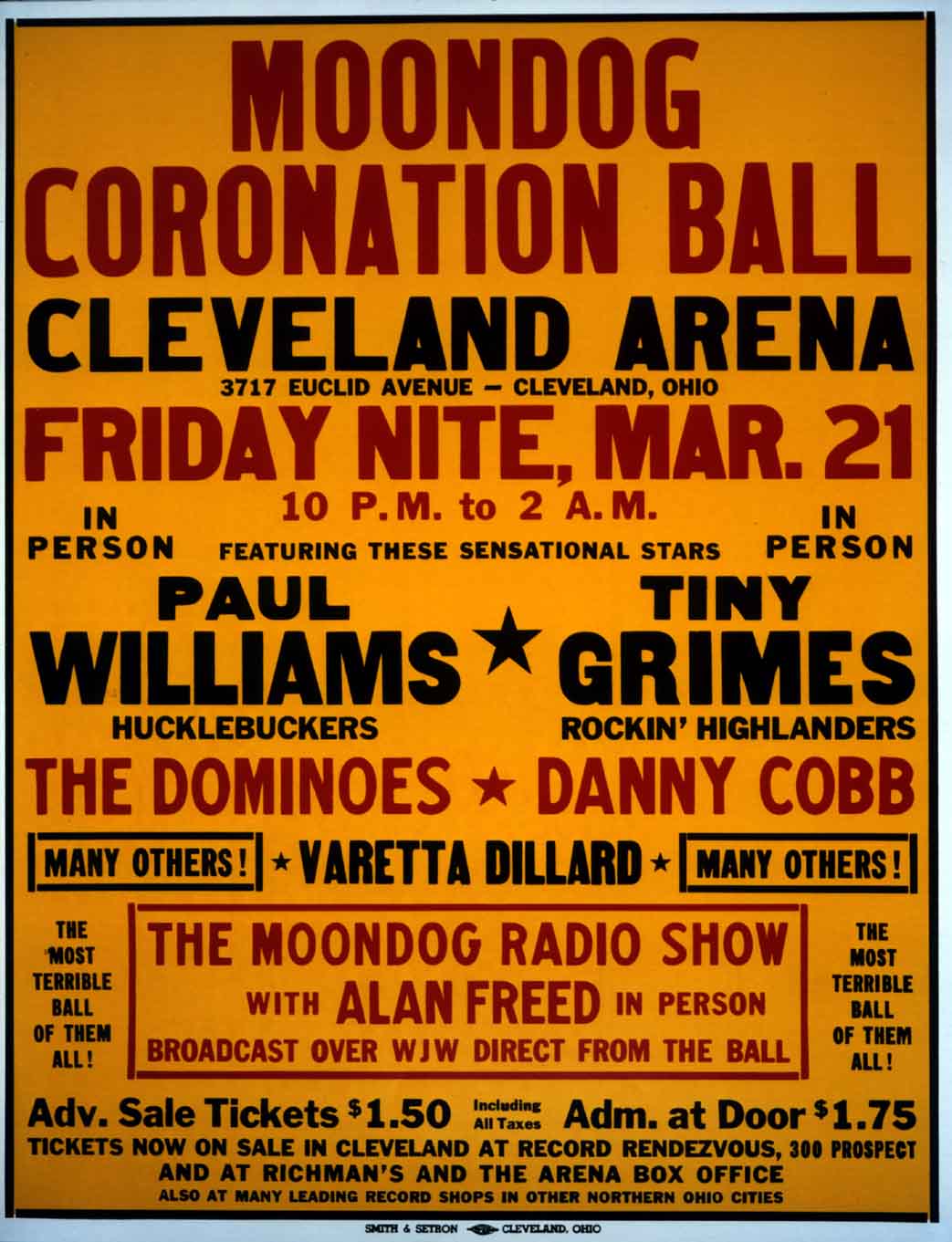
“America has only three cities: New York, San Francisco, and New Orleans. Everywhere else is Cleveland.” That observation tends to be attributed to Tennessee Williams, though it’s become somewhat detached from its source, so deeply does it resonate with a certain experience of life in the United States. But consider this: can every American city claim to be where rock and roll began — or at least the site of the very first rock and roll concert? Cleveland can, thanks to Alan Freed, a famous radio announcer of the nineteen-forties and fifties. The Moondog Coronation Ball he organized in 1952 may have ended in disaster, but it began a pop-cultural era that arguably continues to this day.
Having attained popularity announcing in a variety of radio formats, including jazz and classical music, Freed was awakened to the possibility of what was then known as rhythm and blues by a local record-store owner, Leo Mintz. It was with Mintz’s sponsorship that Freed launched a program on Cleveland’s WJW-AM, for which he cultivated a hepcat persona called “Moondog.” (Some credit the name to an album by Robby Vee and The Vees, and others to the avant-garde street musician Moondog and his eponymous “symphony.”) Starting at midnight, the show broadcast hours of so-called “race music” to not just its already-enthusiastic fan base, but also the young white listeners increasingly intrigued by its captivating, propulsive sounds.
Freed soon commanded enough of an audience to describe himself as “King of the Moondoggers.” When he announced the upcoming Moondog Coronation Ball, a show at Cleveland’s hockey arena featuring sets from such popular acts as Paul Williams and the Hucklebuckers, Tiny Grimes and the Rocking Highlanders (an all-black group whose signature kilts would surely stir up “cultural appropriation” discourse today), Varetta Dillard, and Danny Cobb, the Moondoggers turned out. About 20,000 of them turned out, in fact, twice what the venue could handle. A ticket misprint was to blame, but the damage had been done — or rather, it would be done, when the well-dressed but over-excited crowd stormed the arena and the authorities were called in to shut the show down by force.
In the event, only the first two acts ever took the stage. The planned coronation of the two most popular teenagers in attendance (a holdover from another cultural dimension entirely) never happened. But the spirit of rebelliousness witnessed at this first-ever rock concert was like a genie that couldn’t be put back in its bottle. However square his image, Freed, who popularized the term “rock and roll” as applied to music, was never much of a rule-follower in his professional life. His later implication in the payola bribe scandals of the late fifties sent his career into a tailspin, and his early death followed a few years later. But to judge by re-tellings like the one in the Drunk History video just above, he remains the hero of the story of the Moondog Coronation Ball — and thus a hero of rock and roll history.
Related content:
The Live Music Archive Lets You Stream/Download More Than 250,000 Concert Recordings–for Free
Based in Seoul, Colin Marshall writes and broadcasts on cities, language, and culture. His projects include the Substack newsletter Books on Cities and the book The Stateless City: a Walk through 21st-Century Los Angeles. Follow him on the social network formerly known as Twitter at @colinmarshall.


Lovely post. Really enjoyed reading.
The post put me in mind of Andrew Hickey’s on-going podcast “A History of Rock n’ Roll in 500 songs”. Something Open Culture should feature a post on. Hickey is currently on song 178 and he’s been going for seven years.
The podcast is exceptional. Well worth a listen and a feature.